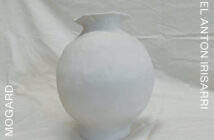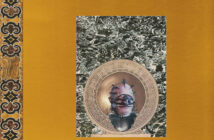
Nico Muhly is now known as a prodigious talent Рfrom his work both as composer and collaborator Рthanks to several well-documented takes on his role working with Bj̦rk, Philip Glass and Rufus Wainwright to name a few, plus several profiles in publications such as The New Yorker and The Times.
So from the outset, Mothertongue may seem like an intimidating album before even taking in its ambitious description. Merging classical music with a study of the human voice, Muhly’s follow-up to Speaks Volumes is divided into three movements, linked stylistically through Muhly’s dissection and composition of the voice. The first movement begins with ‘Archive’, all cacophonous voices and disorienting sounds. Tone, intonation and resonance are all important here, as a rabble of voice snippets speak the remembered fragments of Muhly and singer Abigail Fischer’s childhood memories. Street addresses, phone numbers and social security numbers burst forth from Fischer’s lips atop a delicate string and woodwind section.
Fortunately, Muhly’s compositional skill never allows the voices to become overly dominant; there is still enough space for the classical elements to shine through amidst the various clicks, lip smacks and assorted mouth noises he chooses to build up along the way. ‘Hress’ is perhaps the most pertinent example – the voices are integral to the composition but they never compete for attention with the instrumentation. Muhly arranges the voice in such a way that regardless of the listener’ ability to understand or to make logical sense of the words, the emotion and non-linguistic meaning are articulated far more than would be expected.
Second movement ‘Wonders’ couples harpsichord and shifting time signatures in order to describe the experience of jetlag, exploration, temporal shifts – a “soundtrack for a cabinet of wonders”, as Muhly puts it. It’s a challenging field to try to cover over just three compositions, and doesn’t work as strongly as the first or third movements because of the scale of the material he tries to cover. ‘The Only Tune’ works better, exploring the sounds and patterns of folk songs in his inimitable style.
Mothertongue is an incredibly ambitious work, and its beauty is able to shine through from Muhly’s meticulous layering of complex voices, instrumentation and context.
Alexandra Savvides



